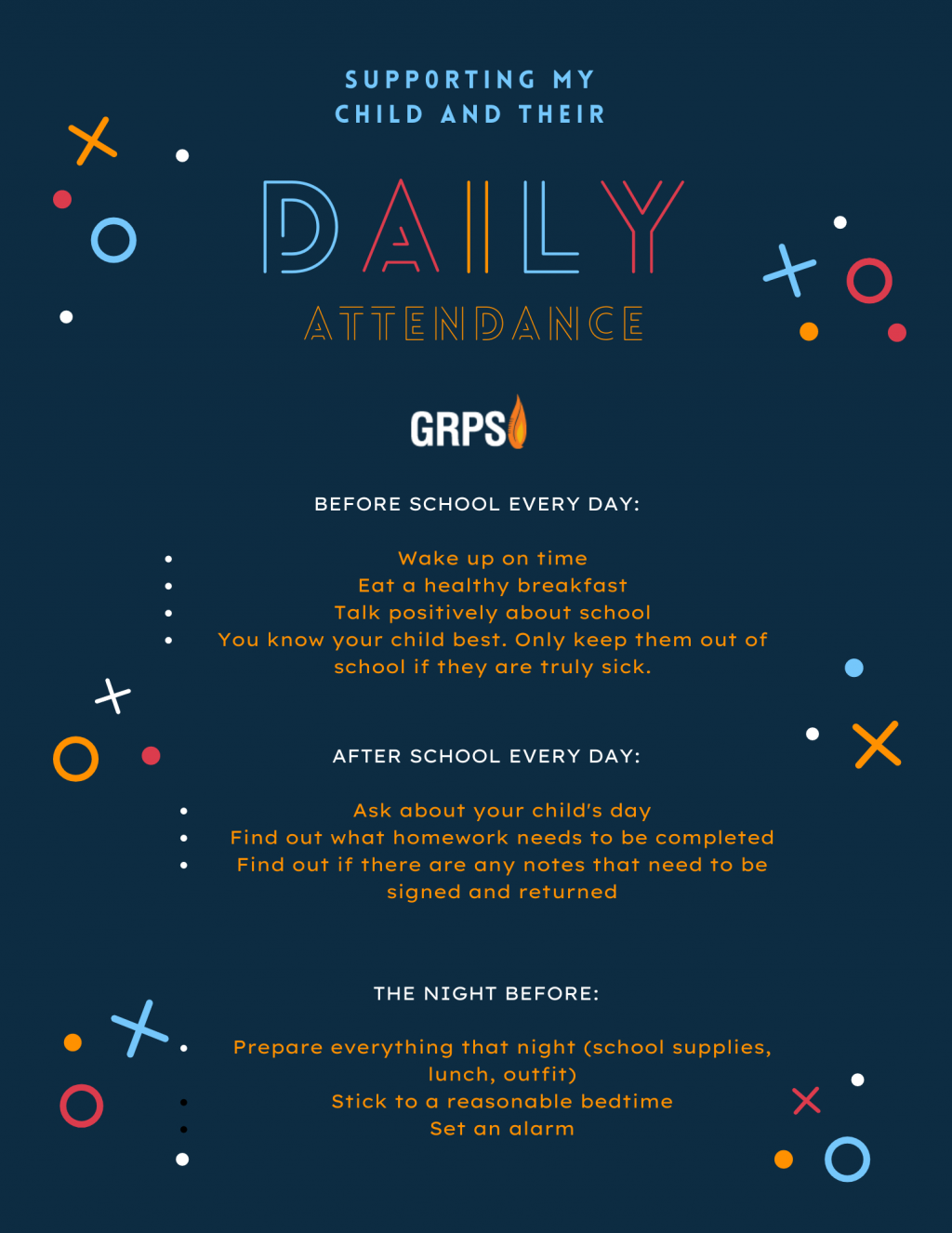
Forming Healthy Sleep Habits
Your child’s learning ability, mood, and behavior are linked to how much sleep they get each night. Parents know that a restful night can make the difference between a quick, pleasant morning routine and a tantrum, which can impact your child’s school attendance.
According to healthychildren.org and the American Academy of Sleep Medicine (AASM), children require different amounts of sleep each night depending on their developmental stage. Here is a helpful chart that your family can reference when establishing your child’s bedtime routine:

In addition to establishing healthy sleep habits, there are numerous ways to support your child academically. The FACE office created this helpful daily routine checklist that can be implemented before school, after school, and before bedtime to achieve your attendance goals.
Sleep is like Food for Your Brain
- Sleep lets your mind recharge and process information. It’s the only part of the day that your body gets to rest and repair.
- Sleep can help you feel better, think more clearly and concentrate better. It gives you energy to complete tasks and can make you more alert.
- Without enough sleep you may have problems with thinking, concentrating, memory, reaction times and mood.
Sleep and the Brain
https://youtu.be/Cx6UDNNOqhg
Sleep and School Performance
Academic achievement may also be dragged down by missing school. Sleeping problems have been tied to increased absenteeism or tardiness in school. Behavioral factors may contribute to missed school time, and poor sleep is tied to physical problems like lethargy, headaches, and pain that may contribute to absences due to illness.
The majority of research about sleep deprivation has been conducted in adults, but many of the same effects are believed to occur in younger people. Although fewer studies have examined lack of sleep in children, the existing evidence indicates that poor sleep can harm academic achievement in several ways.
A direct way that sleep and school performance are connected is through effects on mental function. Some known problems associated with lack of sleep include:
- Decreased attention. The ability to concentrate is vital to learning and academic achievement, but insufficient sleep reduces attention and focus.
- Impaired memory. Sleep provides a time for memory encoding, which is when the brain stores and strengthens the recollection of an image or thought. Without adequate sleep, memories may not be properly formed, and it may also be more difficult to accurately recall stored information.
- Slowed processing. Short sleep may reduce sharpness, slow reaction time, and hinder the ability to quickly take in and analyze information.
- Worsened sequential thinking. The ability to remember a series of steps, such as in a science experiment or when playing a musical instrument, is reduced when sleep is curtailed.
- Reduced creativity. Creative thinking relies on being able to make connections between diverse ideas, and some research has found that this type of mental activity is harmed by poor sleep.

Sleep deprivation can also detract from school performance because of various effects on mood and behavior:
- Excessive daytime sleepiness: Drowsiness during the day, including at school, can have considerable consequences for academic achievement. Dozing off for seconds at a time, known as microsleeps, can occur in the classroom, causing a student to fall asleep at their desk. In addition to interrupting learning, this may be viewed by teachers as a behavior problem.
- Poor decision-making: Limited sleep can hinder the development of the parts of the brain involved in making good decisions, increasing the likelihood of risky or unwise choices that can lead to disciplinary problems in school.
- Aggression: Some research in children has linked sleeping problems to a heightened risk of aggressive behavior, which may be especially worrisome when combined with sleep deprivation’s effects on mood.
- Irritability and mood: Quality sleep is correlated with healthy emotional regulation, which may make children and teens who fail to get enough sleep more likely to be irritable or upset.
- Hyperactivity: Insufficient sleep can affect attention and in one study was associated with levels of hyperactive behavior reported by teachers. Sleeping problems may exacerbate the symptoms of attention-deficit/hyperactivity disorder (ADHD).
- Depression and Anxiety: In both adults and children, sleep deprivation is associated with a higher risk of depression and anxiety, and these conditions can directly affect a child’s overall health and school performance.
Sleep Tight!

